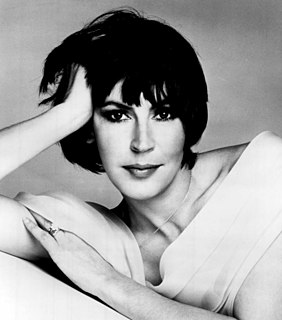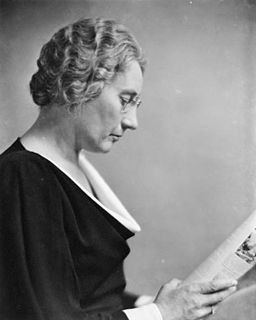A Quote by Helen Reddy
Women today have more of an overview of their lives and how marriage is or is not a part of it.
Related Quotes
There is no going back to a time when most women will feel compelled to enter or stay in a bad marriage just for economic security or social respectability. So today, the best way to get women once more interested in getting married and having children is for men to accept women's new insistence on equality. This is, I think, why educated women in America, are now more pro - marriage and more disapproving of divorce than other groups of women who have less experience with egalitarian partners or less clout in getting their needs met in relationships.
We have to start looking at the world through women's eyes' how are human rights, peace and development defined from the perspective of the lives of women? It's also important to look at the world from the perspective of the lives of diverse women, because there is not single women's view, any more than there is a single men's view.
Women have always been more critical of marriage than men. The great mysterious irony of it is - at least it's the stereotype - that women want to get married and men are trying to avoid it. Marriage doesn't benefit women as much as men, and it never has. And women, once they are married, become very critical of marriages in a way that men don't.
In the nineteenth century, in part because a ton of American men moved west, in part because of the Civil War, and in part because of trepidation about marriage, which was then a very confining institution, there was a big population of women - mostly middle-class white women on the East Coast - who didn't marry.
In the daily lives of most men and women, fear plays a greater part than hope: they are more filled with the thought of the possessions that others may take from them, than of the joy that they might create in their own lives and in the lives with which they come in contact. It is not so that life should be lived.
Throughout the last century there were multiple attempts at giving Afghan women more autonomy, to change marriage laws, to abolish the practice of bride price and child marriage, and to enforce women to be involved in school. Every time, the reaction from the traditionalists was one of contempt and scorn and at times outright rebellion. I think the emancipation of women in Afghanistan has to come from inside, through Afghans themselves, gradually, over time.


































